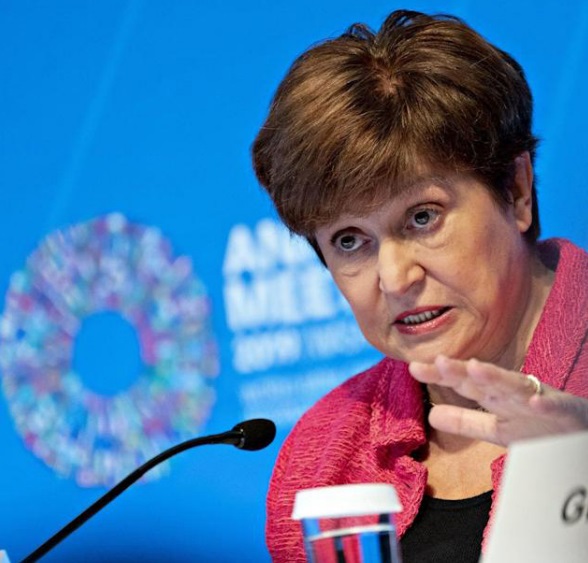
Victory for Civil Society
According to the Society for International Development (SID) the termination of the Doing Business Report marks a major victory for over 360 civil society organisations, academics and trade unions from 80 countries who earlier this year demanded the World Bank to stop publishing it.
The report ranked countries on parameters starting a business, dealing with construction permits, getting electricity, getting credit, protecting investors, paying taxes, trading across borders, enforcing contracts, and resolving insolvency.
For all parameters, the less regulation a country imposed, the better it scored.
Over years, the report became a powerful competitive tool among the 190 countries assessed.
According to the EAC Investment Guide of the East African Community, “the World Bank Doing Business project provides objective measures of business regulations and their enforcement across 190 economies and selected cities at the subnational and regional level”.
“EAC Partner States undertook various reforms inspired by Doing Business Reports of the World Bank Group since 2002,” the EAC secretariat says on its website.
Yet as far back as 2018, it had become increasing clear that the World Bank’s DB reports often contained manipulated data if not outright dubious data.
In 2018 the World Bank Chief Economist Paul Romer resigned after challenging the integrity of the DB Index data. He told journalists that the data is manipulated. He gave the example of Chile, which he said was in 2014 dropped from number 34 to the worse position of 55 by World Bank staff members who were ideologically opposed to Chile’s socialist government.
Then the Center for Global Development (CGD), an American think tank, said India’s ranking in the 2018 Doing Business Report was manipulated to improve the government’s standing. The CGD told the World Bank: Either scrap the Doing Business Index or reform its methodology and governance.
In Africa two countries have consistently performed best on the DB Index; Mauritius and Rwanda. They often featured better that even developed countries like Japan yet both are small poor countries.
Yet despite these glossy ranking, Mauritius and Rwanda, have not evolved into the most attractive destinations for Foreign Directed Investment. Instead, the EAC, for example, Kenya, Tanzania and Uganda out-perform Rwanda in attracting FDIs.
Some experts say lesser known reports, such as the Investment Climate Statements of the U.S. Department of State provide better country-specific information on business climates. These reports cover 170 countries using different parameters like: legal and regulatory regimes, dispute resolution, and the role of state-owned enterprises. They look at local content requirements, governmental transparency, and level of skilled workforce, corruption, and sectors ring-fenced to foreign businesses.
In 2020 the report was suspended because of suspected data manipulation in the 2017-2021 reports. The World Bank itself said it had noticed data irregularities in the last five annual reports.
Major countries affected by the irregularities were four; China, Saudi Arabia, the United Arab Emirates and Azerbaijan. Saudi Arabia recorded the greatest improvement in the 2020 report. It jumped from position 91 the previous year to 62. China rose from 46 to 31.
Critics argued that discontinuation of the Doing Business Report is testament to the fact that the current global finance, debt, and economic architecture is not fit for developing countries’ structural transformation needs and to global commitments under the 2030 Agenda.
“Policies informed by approaches and methodologies aimed at benefiting wealthy countries and multinational corporations have been the order of the day at the expense of African economies,” said Adrian Chikowore, African Forum and Network on Debt and Development (AFRODAD), Zimbabwe.
“The World Bank’s decision comes 18 years too late. Much harm has been done in countries cutting back social and environmental standards and deregulating their economies to climb on the rankings. We remain concerned by the Bank’s commitment to advance the role of the private sector in development through new assessment methods. If shape and form change but content remains the same, the Bank’s ideological prescriptions will lead to equally harmful impacts and deepen inequalities,” said Flora Sonkin of SID, USA.
Critics say the Doing Business data-tampering is only the latest in a long list of wrongdoings by the World Bank Group. They say the lender is, an institution ridden with conflicts of interest and marked by an unaccountable and undemocratic governance structure, should not be defining what makes good economic advice for the world.
Policies behind the Doing Business report rewarded countries that cut corporate income taxes and contributions to employee retirement schemes, reduced social tax rates, and abolished social security contributions.
Critics said latest Doing Business scandal reveals deeper institutional flaws that include corruption and political handling of research and analysis. It also raises questions on what other methodological leeways were given in the development of World Bank statistics, which ultimately impact widely used development indicators.
“Corruption is not only a matter of the Bank’s flagship publication or political manipulation by its management. It is also deeply ingrained in the way the World Bank picks who it supports through its private-sector lending window, the International Finance Corporation (IFC),” said, “Roberto Bissio, Social Watch, Uruguay, “Only diplomatic immunity saves the World Bank’ private sector lending from a landslide of corruption cases.”
“The data rigging found in the report is merely the tip of the iceberg and the legitimacy crisis of the World Bank Group extends deeper into its biased narratives, ideologies and policy agenda which supports private returns at the expense of public interest regulations that safeguard social equity and the environment.”
They say a structural overhaul of World Bank’s policies and governance mechanisms is the need of the hour for it to have any credibility left.
“The Doing Business case revealed the internal accountability deficit of the World Bank. Its announcement to discontinue the rankings along with personal penalties are not enough. The external investigation highlights once again the structural problems of the institution. Far-reaching reforms with regard to internal accountability structures are necessary and external control is urgently needed,” said Dustin Schäfer, Campaigner at Urgewald, Germany.
Yet critics pointed out, even as the DB Index short-comings were exposed, some countries, such as India, Indonesia, and Rwanda continued to design national reforms with the sole intention of climbing up the DB rankings. Rwanda has an entire government department, the Rwanda Development Board (RDB), devoted to this purpose.
“Rwanda has adopted a very bold and ambitious approach to reforming its business environment and we will continue working on further improvements in keeping with our vision of a private sector-led economic transformation,” said Clare Akamanzi, the CEO Rwanda Development Board, when Rwanda jumped 30 places from rank 41 to 11 in one year in 2018.
 The Independent Uganda: You get the Truth we Pay the Price
The Independent Uganda: You get the Truth we Pay the Price



As the NUP spokesperson, dictator M7 is responsible for this state of events in the World Bank and Washington DC. That is why we as NUP recommend that the next President of the World Bank should be Fred Nyanzi Ssentamu.